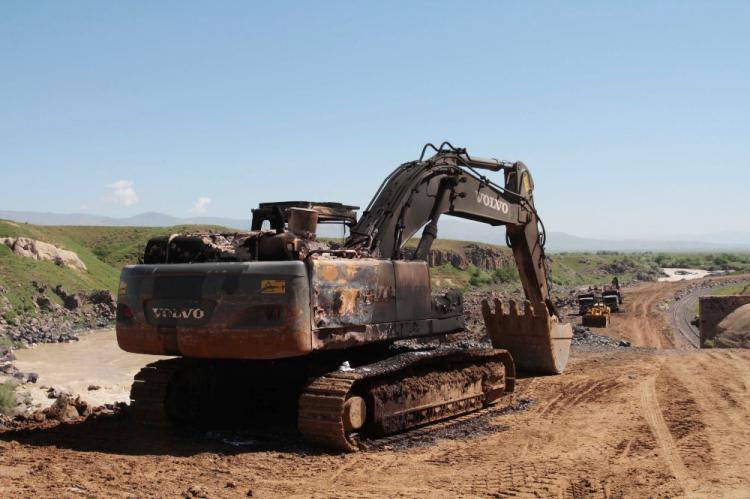Why is Turkey at war with the PKK?
Wall Street Journal article claims that ceasefire between Turkish army and PKK is broken because of “Ankara’s violent crackdown on Kurdish protesters in 2014”
On 29 August 2016, an article was published in The Wall Street Journal in which it was claimed that the ceasefire between the Turkish government and the Kurdistan Workers’ Party (PKK) was broken because of Turkey’s “crackdown” on the Kurds.
The PKK is a Marxist-Leninist militant organization – listed as terrorist group by Turkey, the US, NATO and the EU – that seeks to impose its ideology on Turkey’s majority-Kurdish southeast.
“The government of Recep Tayyip Erdogan is again at war with the Kurds, thanks to Ankara’s violent crackdown on Kurdish protesters in 2014,” wrote the author without clarifying what event he was referring to by “Ankara’s violent crackdown”.
As a matter of fact, the conflict resumed because the two-and-a-half-year-long ceasefire between the Turkish government and the PKK, which lasted since April 2013 until July 2015, was brought to an end by the Kurdistan Communities Union (KCK), the PKK’s umbrella group. On 11 July 2015, the KCK announced that the ceasefire is over, warning that they will target dams in southeastern Turkey.
The KCK claimed that the Turkish government was constructing dams and roads in Turkey’s majority-Kurdish southeast to gain the upper hand over the PKK. Dam constructions are aimed at “cultural genocide” and have “military purposes”, according to the armed organization.
On 22 July 2015, two police officers were killed in their sleep in an armed attack. The PKK said the attack was carried out by its militants. This murder effectively put an end to the ceasefire.
On 12 September 2015, two months after it declared the end of the ceasefire, the KCK asked for a new ceasefire. KCK commander Mustafa Karasu was reported to have said that they are “ready for negotiation and for democratic resolution which will be overseen by arbiters within the frame of consolidated ceasefire”.
On 3 November 2015, another KCK commander, Cemil Bayik, called Turkey’s November 1 snap elections, in which the ruling Justice and Development Party (AK Party) won 49.5 percent of the vote, a “political coup”. Bayik also claimed that the AK Party will escalate the battle. Two days later, nearly two months after its demand for a new ceasefire, the KCK once again declared unilaterally that the ceasefire is over.
Click here for a clip that shows PKK commanders and deputies of the pro-PKK Peoples’ Democratic Party (HDP) threatening to end the ceasefire several times, which they did ultimately.
The ceasefire between 2013 and 2015 was marked as the culminating point of a series of democratic reforms introduced under the Justice and Development Party’s rule, led by then-Prime Minister Recep Tayyip Erdogan, who in 2014 was elected president. Some of them can be listed as follows:
The 51-year-old state of emergency in the southeast of the country was lifted; an institute for the study of Kurdology was established for the first time in the history of the republic; citizenships were returned to Kurds who in the past were denationalized; and the Kurdish version of the state-run TV channel TRT (The Turkish Radio and Television Corporation), TRT Kurdi, was established.
Please click here for a chronological list of democratic reforms introduced to resolve the Kurdish question.



